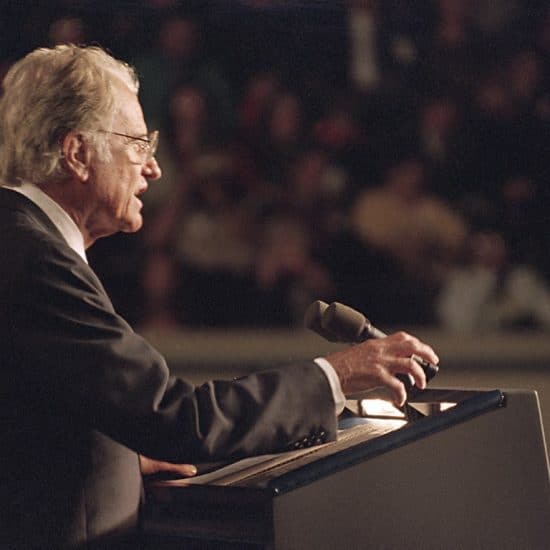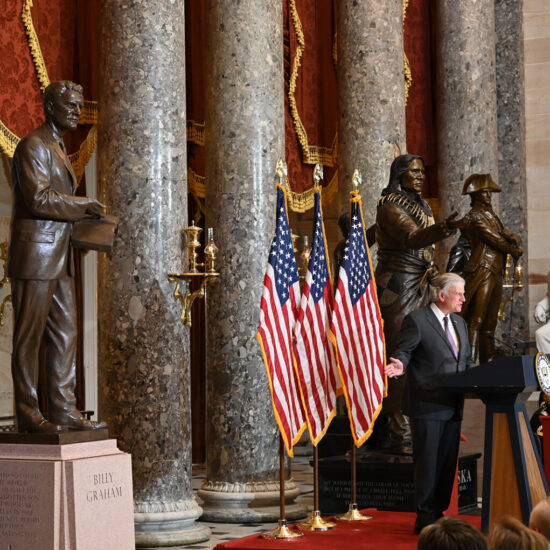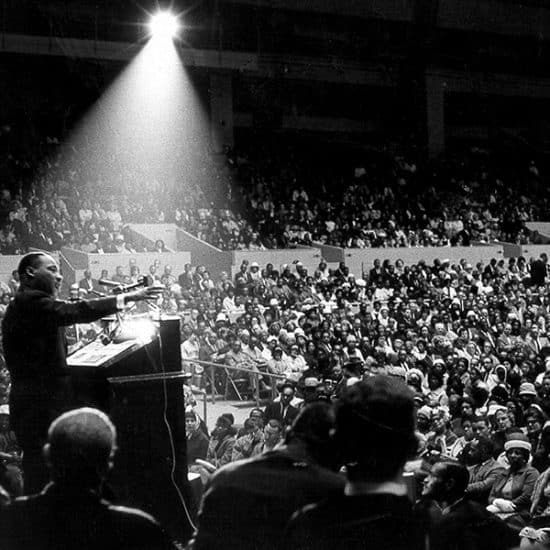CHARLOTTE, N.C. (RNS) — If Billy Graham was “America’s pastor,” as so many headlines pronounced following his death, who was Billy Graham’s pastor?
It might seem a trifling question. Did the late evangelist need a pastor? Wasn’t Jesus his pastor?
It turns out Graham in his later years increasingly came to rely on the services of a local church pastor.
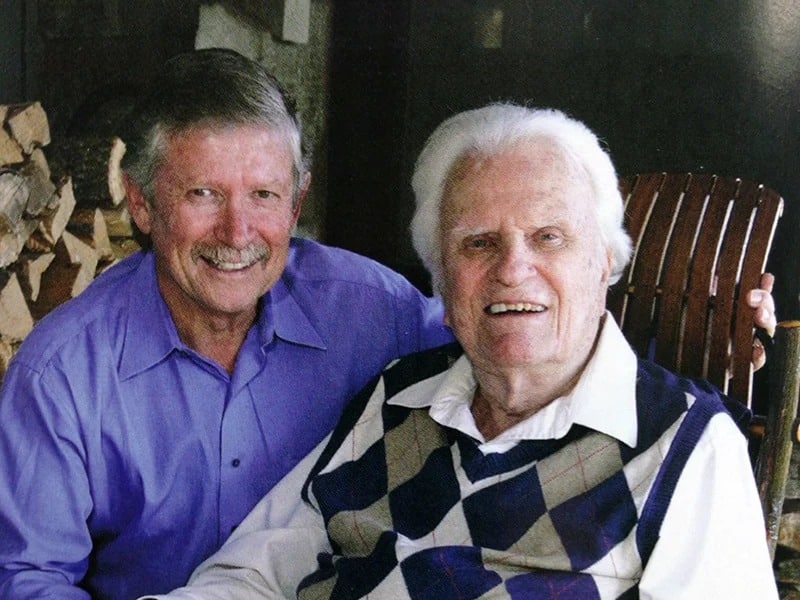 The Rev. Don Wilton, left, with the Rev. Billy Graham, in an undated photo. Photo courtesy of First Baptist SpartanburgThe Rev. Don Wilton, the pastor of First Baptist Church in Spartanburg, S.C., a megachurch that attracts 2,500 people on Sundays, served as Graham’s pastor for 10 years and as a friend for 25.
The Rev. Don Wilton, left, with the Rev. Billy Graham, in an undated photo. Photo courtesy of First Baptist SpartanburgThe Rev. Don Wilton, the pastor of First Baptist Church in Spartanburg, S.C., a megachurch that attracts 2,500 people on Sundays, served as Graham’s pastor for 10 years and as a friend for 25.
He was also the man Graham chose to preside over his burial on Friday (March 2) in a memorial prayer garden near the Billy Graham Library in Charlotte.
The friendship, encouragement, counsel and support that Wilton offered as pastor was one of the ways Graham modeled what he believed it meant to live a Christian life.
To Graham, a Christian was not just someone who believes in Jesus’ sacrificial death and resurrection, but also someone who faithfully attends church and submits to the authority of a local pastor.
“Mr. Graham believed strongly that God, through Jesus Christ, instituted the local New Testament church,” Wilton told Religion News Service a few days before the funeral.
“He had a deep and profound understanding of that. And he told me many times, ‘Don, if I could, I would want every person who ever responded in every crusade to become a functional integral part of a local New Testament church under the authority of that pastor and that body of Christ.”
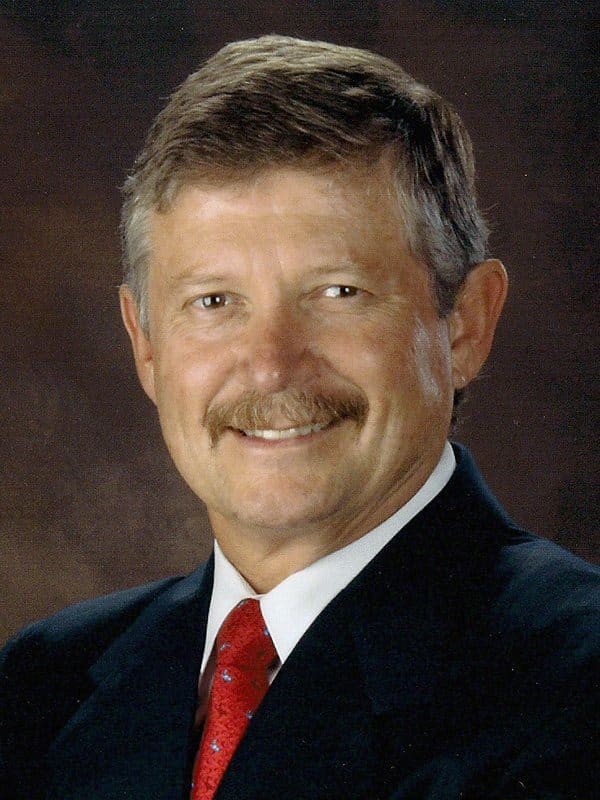 The Rev. Don Wilton. Photo courtesy of First Baptist SpartanburgWilston said that at least once a week he drove to Graham’s mountaintop home across the border in Montreat, N.C., a nearly 1.5-hour drive.
The Rev. Don Wilton. Photo courtesy of First Baptist SpartanburgWilston said that at least once a week he drove to Graham’s mountaintop home across the border in Montreat, N.C., a nearly 1.5-hour drive.
There, the two would have lunch — Graham loved anything barbecued — sit on the porch overlooking the Black Mountain, watch with the dogs play, or spend time in prayer.
Grant Wacker, the Gilbert T. Rowe Professor Emeritus of Christian History at Duke Divinity School, said the relationship was good for Graham after decades of conducting crusades across the world that took him away from home for nine months a year.
“As soon as he was in a position where he was not traveling, he reached out and embraced a caring local pastor,” said Wacker. “And he needed that.”
Graham and his wife, Ruth, first invited Wilton to their home in 1993, after watching him preach a sermon that his church broadcast on TV each Sunday. The two became fast friends and Wilton an occasional guest at the mountain house.
In 2008, as Graham turned 90 and became increasingly frail and confined to his home, he decided to switch his formal membership from First Baptist Church in Dallas which he rarely, if ever, attended to Spartanburg.
Though he didn’t attend in person — Graham was concerned about creating “a disturbance” — he relied on Wilton for prayer, study and spiritual counsel.
At first, Wilton said, he would share with Graham his notes for the Sunday sermons.
“Talk about putting the fear of the Lord in me,” Wilton quipped.
But as time went on, their meetings took on more of an intimate talk about matters spiritual, but also personal.
“He shared his life with me and as he progressively began to enter the advancing years of old age, it was an unspeakable joy to be able to hold his hand and to minister to him and to be with him continually and be loved by him,” Wilton said.
Graham began talking about dying about 15 years ago, Wilton said. That included planning his funeral and burial. Graham picked a passage from Galatians 6:14 — “May I never boast except in the cross of our Lord Jesus Christ” — for Wilton to elaborate on.
His conviction that he would meet Jesus made dying easier. For Graham, Wilton said, “death had lost its sting.”
A native of South Africa, with a sweet, lilting accent, Wilton, 64, received his masters in biblical studies at New Orleans Baptist Theological Seminary, later earning a Ph.D., and teaching at the seminary. He left for Spartanburg in 1993, and met Graham shortly after assuming the position of senior pastor.
Wilton described Graham as a man of grace and humility who took an active interest in the affairs of the world. As Graham lost his hearing and his eyesight failed, he increasingly relied on others to bring the world to him. His final years were spent in near confinement. He had not left his mountaintop home in years — not even for doctor’s appointments.
In his final years, Graham hewed ever more closely to the habits and practices he believed ought to govern Christian life. Those included personal devotions, prayer, Bible study, discipleship in the form of a group or a mentor, and learning the word of God through the preaching and teaching of a local pastor.
There was one other habit Graham insisted on. After each visit, as Wilton got up to leave, Graham prayed for him.
“He placed his hand on my shoulder or my head and asked God to watch over me,” Wilton said. “I’m the one who ended up with the blessings.”

